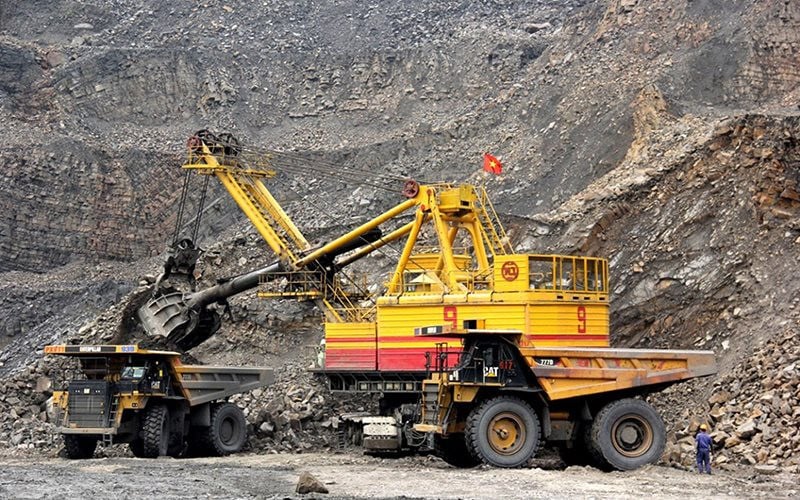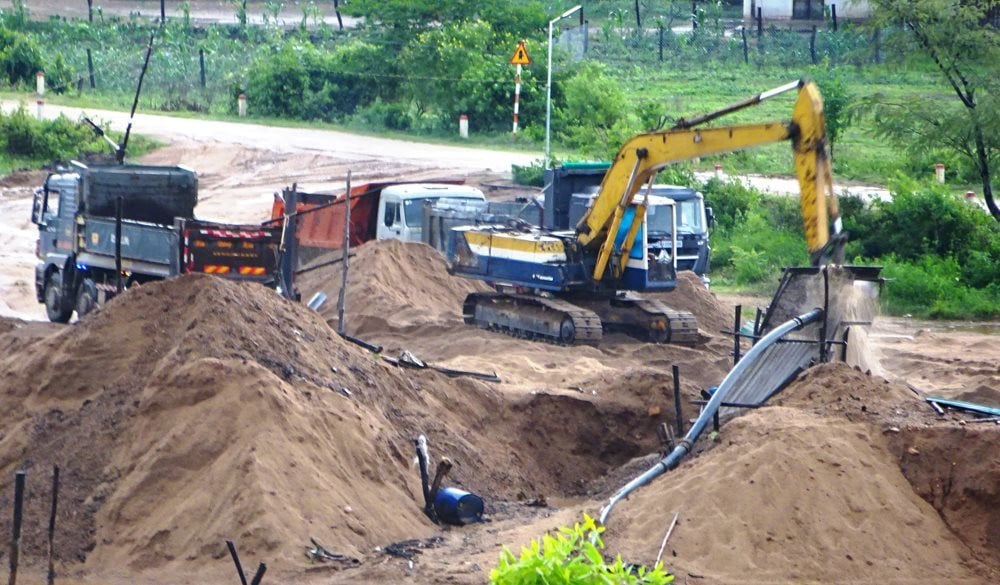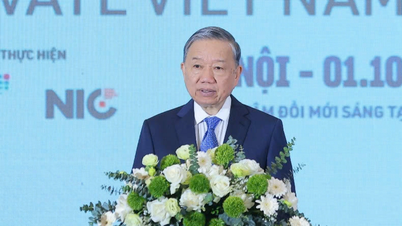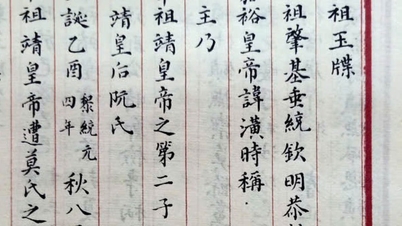In the recent drafting of the Law on Geology and Minerals, lawmakers, authorities, experts, and managers all agreed that it is necessary to have more specific and stricter regulations on the content of the auction of mineral exploitation rights. The goal that the lawmakers and state management agencies on minerals aim for is to build a tight legal framework, make mineral management transparent, so that minerals and mineral activities must effectively serve the country's development goals, and fairly benefit the national, local, and business interests through transparent information management, for which auctions are considered a strong solution.
However, as some experts have said, no one can be sure of the absolute perfection of any law. The gap between the principles of the law and the movement of real life will more or less create loopholes and the regulations on auctions in mineral exploitation are no exception. Auction-breaking or auction avoidance are typical examples.

Recently, the Prime Minister himself had to directly direct the review of issues related to the auction of three sand mines in Hanoi with prices offered hundreds of times higher than the initial starting price.
There are many hypotheses surrounding the successful auction of 3 sand mines in Hanoi at prices hundreds of times higher than the starting price, and each hypothesis brings concern to society. The first hypothesis is that the reserves of the mines are not assessed to be realistic. With the characteristics of being located below the riverbed, measuring, evaluating, and estimating sand reserves is not easy. With just a small impact, whether subjective or objective, the number can change rapidly. If this hypothesis occurs, the State will lose mineral resources.
The next hypothesis is a virtual auction and then a deposit is forfeited. We will have to wait for further developments to be able to conclude, but it is difficult not to be skeptical, because the survey results show that the price of sand used as construction materials in Hanoi and neighboring provinces is only about 100,000 VND/m3, including transportation costs to the construction site. Meanwhile, the average price per cubic meter of sand remaining at the 3 mines that have just been successfully auctioned is up to 800,000 VND/m3, not even including the cost of exploitation and transportation.
This price inflation reminds people of the trick of "silkworms eating mulberry trees", which means that after being licensed to exploit sand, businesses will gradually encroach on the area of legally licensed exploitation, encroaching a little each day, and after a year, looking back, the exploitation area is many times larger than the legal "core area".
This has happened in many localities, almost implicitly understood as a matter of course to compensate for the limited sand reserves. That is also one of the many reasons why businesses compete to push the price of sand mining rights up to dozens, hundreds of times compared to the starting price.
For a long time, the authorities have discovered many cases of sand mining outside the licensed scope in provinces and cities... Some enterprises have used equipment to scoop sand outside the location, mine boundaries, and beyond the prescribed time frame; exploited beyond the licensed capacity; failed to maintain the operation of weighing stations, camera surveillance systems, kept incomplete books, invoices, and purchase and sale documents; declared and paid taxes on mineral exploitation and trading not in accordance with the licensed output... This situation cannot be unrelated to the auction-busting trick that has occurred before.

The Draft Law on Geology and Minerals, which is being drafted, has supplemented and clarified the provisions on auctioning mineral exploitation rights. The 2015 Penal Code (amended and supplemented in 2017) also clearly stipulates the conditions for criminal prosecution for the crime of "Violating regulations on research, exploration and exploitation of resources". Hopefully, with the vision of the Draft Law and related laws, it will create a legal corridor to restrain and limit the act of profiteering from minerals through tricks, of which auction-breaking is a typical example. However, the law is ultimately just a tool, the most important thing is that law enforcement officers do not "break" their own professional ethics standards or assist and ignore subjects who evade the law or break the law's standards.
Source







![[Photo] Hanoi morning of October 1: Prolonged flooding, people wade to work](https://vphoto.vietnam.vn/thumb/1200x675/vietnam/resource/IMAGE/2025/10/1/189be28938e3493fa26b2938efa2059e)


























![[Photo] Panorama of the cable-stayed bridge, the final bottleneck of the Ben Luc-Long Thanh expressway](https://vphoto.vietnam.vn/thumb/1200x675/vietnam/resource/IMAGE/2025/9/30/391fdf21025541d6b2f092e49a17243f)




























































Comment (0)